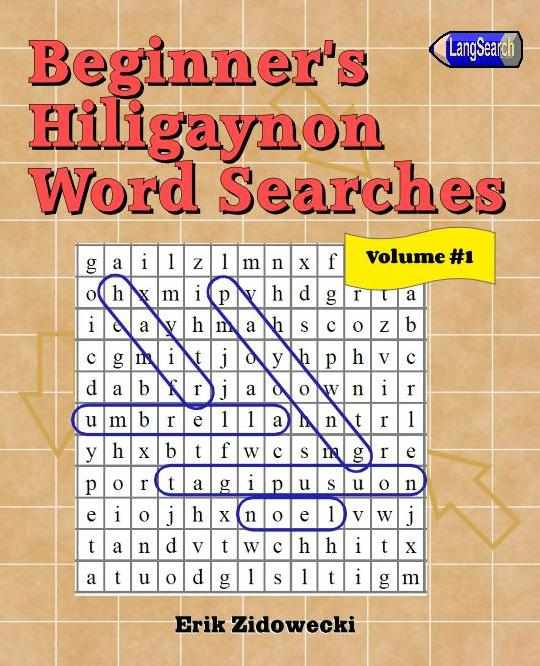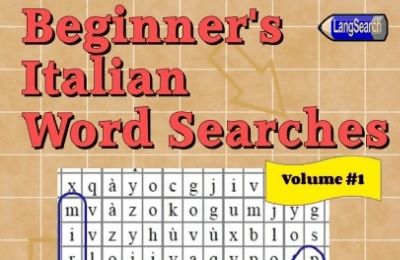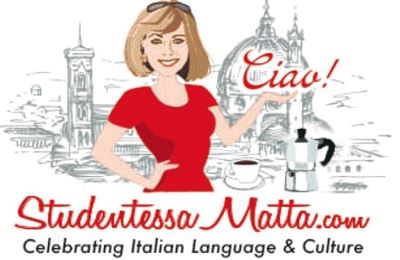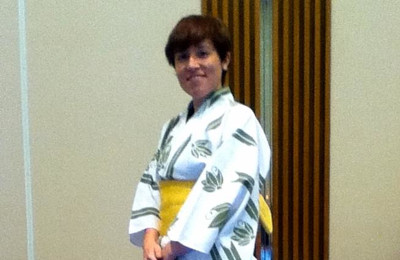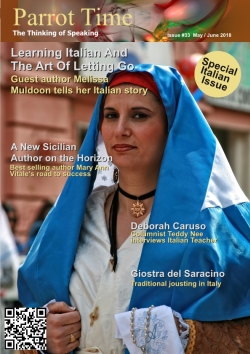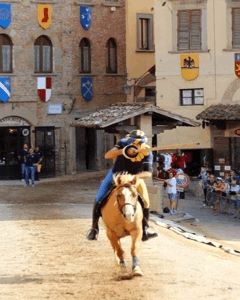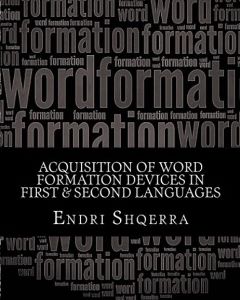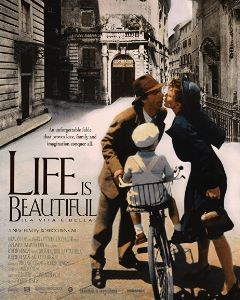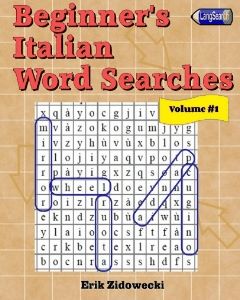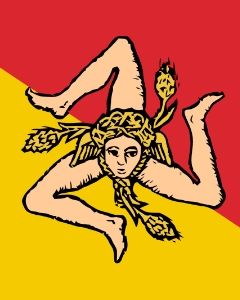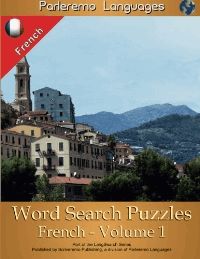In Others' Words
Deborah Caruso

|
For this special Italian issue, Teddy Nee interviewed Italian translator and tutor, Deborah Caruso. Hi, first of all, I would like to thank you for giving me this opportunity. Could you tell us about yourself (such as hobbies, place of origin/ living, languages, etc)?  My name is Deborah Caruso and I am 25 years old. I am an Italian, a Southern Italian, and around 2 weeks ago, I resigned from my job because I did not like it anymore and because it was a volunteer position. Suddenly, I did 2 things: firstly, I booked a holiday in Barcelona and I started thinking about what to do. I decided to teach Italian again as a freelancer, we will talk about that later. During my spare time, I swim and travel, I am also passionate about photography. Which language are you learning and why? I used to learn Mandarin and English during my first degree, I decided later to switch Mandarin with French during my Postgraduate in England. I started studying languages because in Italy, language studies are compulsory since elementary school and then, I started to study International Relations. During that time, language studies were still compulsory languages exams. My final aim is working as a diplomat or in a foreign policy-related job. That's why I always try to improve my intercultural communications skills. I would like to start studying Spanish language because I think it can be a valuable asset for my future career. Which methods do you use in your language learning? I use traditional methods like using books and listening exercise. I also try to watch movies in their original languages and I try to speak with native speakers. Duolingo app is a revelation and quite useful. Could you tell us which language is the most challenging for you to learn and why? That's hard to say. I think, maybe, it will be a language that I cannot like, such as German. Mandarin was difficult at the beginning just because it has many ideograms to memorise. Maybe Arabic or Hindi can be difficult as well, I would say languages that have a lot of grammar and different alphabet can be complicated to learn. Which language is the least challenging for you to learn and why? Latin, French, Spanish, and all related Romance languages, I suppose. I studied Latin during my high school and that's not an easy language but if you are an Italian, it is like studying the ancestor of your actual language so it's easier for us than for a foreigner. The grammar is quite complicated but very logical, that's why we say "Latin opens your mind". Spanish and French are even quite easy because they are very similar to my mother tongue. What is the next language for you to learn and why? Spanish, as I said before, and maybe Catalan. As I said before, Spanish can be useful in International Affairs because it is one of the most spoken languages in the world. I have also a minor reason, to be honest, I have many Spanish friends and I understand everything what they say but, because I have never studied Spanish, I can't reply and that's frustrating. Which methods do you use to teach languages? I used to teach Italian in a Chinese school in Italy. That was the traditional kind of lesson: a classroom, a blackboard, a teacher and some students. The tools that I used were a bit limited because I had to strictly follow an academic programme. Now, I am teaching private lessons on Skype, it can be very flexible. I use a very useful book that is utilised in the university and in international schools for foreigners here in Italy. It has several phonetics for example in different foreign languages that include also non European languages, such as Mandarin or Arabic. My lesson usually focuses on speaking, dialogues, and many exercises. I also add movies and songs to make it more interactive. I care about grammar and I think that Italian grammar is complicated and important. Many students don't want to study grammar or they think that it is boring and useless. I try not to talk for hours about the grammar but I am strict with the essentials that everybody needs to memorise to speak a decent Italian. Why do you think languages are important for you? Intonation is also a bit hard. I don’t know why, but foreigners believe that each of our sentences ends with a higher intonation sound. We don’t sing while we speak, even if you can listen a musical sound. Well, I started to work, thanks to the foreign languages that I can speak. I am a Mandarin-English translator for an Italian translation agency and I teach Italian and English as a part-time job. I also decided to attend university in England and it was not possible without speaking English. Moreover, political science is an American science so all the relevant academic journals and publications are mostly written in English. How do you make good use of your language skills and can you tell us more about it (such as translation)? I think that the first purpose of understanding a new language is communication. I like to talk with people, to discover new cultures, to travel more without the language barrier. Then, I can say that I made good use of my language skills because I am a translator, focusing mostly on legal and business agreements. In this case, I can say that I can use both my language and academic knowledge. It's important to understand the context, use the correct register, understand who is going to read the document that you are translating. It's important to be very flexible and understand when not to translate literally to give a more sense to your final piece of writing. What do you think is the challenge for learning Italian? I think it depends on the learners. I can say the grammar for sure because is complicated and full of rules as well as exceptions to the rules. Moreover, I met many students that think that the grammar is useless. Reading is easier because you basically read as you write but some sounds can be difficult to pronounce for a foreigner such as -gn, -ch, -gl. Intonation is also a bit hard. I don't know why, but foreigners believe that each of our sentences ends with a higher intonation sound. We don't sing while we speak, even if you can listen a musical sound. The last challenge is about the Italian dialects. As you know, Italian is a conventional language, it's artificial. It was created on Florence's dialect basis with some words from dialects spoken in Rome. It implies that even now, each Italian village has got its own dialect. If people speak a dialect to you, you will not understand. For example, I even don't understand the dialect of Venice. Some Northerners will tell you that they don't speak dialects because they are civilised and we Southerners are not. That's not true. Mostly old people speak dialects from the North to the South in Italy. But all of us speak Italian because we are Italians, even if some regions believe that they are a kind of a new better state that want to leave Italy. That's ignorance. What would you like to say to Italian language learners? Study hard. Italian can sound fun but it's difficult. So be prepared to spend much time on books and have many hours of classes and lessons. Find a native Italian or go to Italy for a period to study. Italian schools and university are hard so Italians are used to study hard to pass their exams. You should start to study as an Italian to speak good Italian. Consider that well educated Italians had a classical education and they also studied Latin and/or Ancient Greek. But don't forget to have fun, socialize, watch movies, listen to songs, and if an Italian invites you for a coffee, always accept! That's a pure social moment, it's not because of the coffee itself. Why do you think we need to learn Italian? I am always surprised when somebody tells me "I study Italian" or "I want to study Italian". This is also my first question on my first Italian lesson with a new student. Their replies are various but the most is that they are fascinated by Italy from our culture and art to our gastronomy. Some of them are in love with Italians, others are musicians or architects or actors and we all know that most of the words in figurative arts are written in Italian. I can't tell you why you need to learn Italian. I can say that when I speak English, I have the feeling that some words are missing. Not because of my English level as I studied in England at an academic level, just because Italian, in my humble opinion, can express feelings in a better way, with different degrees and shades of intensity. Is there anything would you like to add? I would like to thank again for the possibility to be interviewed and I would like to add that if you need Italian private lessons, I would be glad to be your teacher. Please send me an email to deborahcaruso777@gmail.com or add me on Skype at deborah.caruso12 |
| In Others's Words - Deborah Caruso | ||
| Writer: | Teddy Nee | |
All images are Copyright - CC BY-SA (Creative Commons Share Alike) by their respective owners, except for Petey, which is Public Domain (PD) or unless otherwise noted.
|
Interested in ? Find entertaining and educational books for at Scriveremo Publishing. Just click the link below to find them, then remember to see what else we offer in over 30 languages!
| |
comments powered by Disqus
